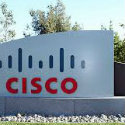US District Court Judge Beth Labson Freeman rules against Cisco in two parts of its patent infringement suit against Arista. But there's more to come.

A judge has dismissed two parts of Cisco's patent infringement lawsuit against Arista, but is letting the rest of the case move forward.
Cisco Systems Inc. (Nasdaq: CSCO) hit Arista Networks Inc. in December with massive patent and copyright lawsuits charging "repeated and pervasive copying of key inventions in Cisco products." The infringing features include Cisco's implementation of the generic command line interface (CLI), Cisco alleges. (See Cisco Slams Arista With Massive Patent & Copyright Suit.)
In a July 9 decision, Judge Beth Labson Freeman, for the US District Court in San Jose, granted Arista's motion to dismiss Cisco allegations of indirect patent infringement prior to the lawsuit, because Cisco is not seeking damages for the allegations prior to the suit.
Separately, Freeman upheld a motion by Arista to dismiss a claim by Cisco that Arista willfully infringed Cisco's patents after Cisco filed its lawsuit.
In that claim, Cisco charged that Arista's EOS+ software, released in December, after the lawsuit was filed, continued patent violations alleged in the lawsuit. Cisco claims that Arista's own press release shows "plausibly that Arista brought a new product to market despite having been put on notice of its infringing conduct by virtue of" Cisco's lawsuit, according to Freeman's decision. (See Arista Gets With the Programmability Program.)
But Arista said EOS+ isn't a new product but instead is a "new version of an existing product," Freeman says (emphasis hers). The judge dismisses Arista's statement in its press release as "puffery."
Cisco proposed a "bright line" test "to determine when a party could seek damages for willful infringement" that goes beyond just "continuing to sell existing accused products while defending the suit," Freeman said
But Freeman decided that the test is unnecessary, because Cisco "failed to allege sufficient facts to meet its own 'bright line' test," and existing precedent covers the allegations. "Especially in regard to software products where updates and revisions are commonplace and frequent in a rapidly evolving market, one could expect that during the course of litigation most software products would have to be revised or die," Freeman says.
Freeman left the door open for Cisco to amend its pleadings.
Find out more about key developments related to the systems and technologies deployed in data centers on Light Reading's data center infrastructure Channel
Freeman's order giving Cisco the opportunity to amend its complaint is "exactly what we expected," Cisco general counsel Mark Chandler said in a statement emailed to Light Reading by a Cisco spokesman.
The decision leaves Arista "in the strange position" of arguing that its own claims about EOS were just "puffery," Chandler said.
Chandler added, "They introduced EOS+ even after they knew of our allegations that they had used our patented technologies, so there can be no doubt that their action was willful. Their motion against the willfulness allegation doesn't rest on denial of infringement, but rather suggest that EOS+ is just a minor tweak to their earlier infringing product. Having owned up to that, maybe they will decide to step forward and admit their patent infringement. The patent infringement claims are unaffected by the judge's order."
Next page: War of words
Arista declined to comment on the judge's decision.
But Arista did respond today to an earlier statement by Cisco that a Supreme Court decision about Java APIs was good news for Cisco.
The Supreme Court ruled in favor of Oracle in a lawsuit against Google for copyright infringement. More specifically, the Supreme Court declined to review a decision in favor of Oracle in the Federal Circuit Court, which ruled that Oracle held the copyright on Java APIs that Google used.
The Supreme Court decision "effectively removed another argument that Arista could make to the Court," Cisco's Chandler said in a July 2 blog post. He noted that the decision only affects copyright claims; Cisco also has patent infringement allegations pending.
But the Google/Oracle decision and the Cisco suit are unrelated, says Kenneth Duda, Arista founder, CTO, and senior VP software engineering, in a blog post Wednesday. The Google/Oracle decision relates to APIs, while the Cisco lawsuit pertains to the command line interface.
"In the past few years, the tech industry has watched with increasing concern as various entrenched participants have brandished copyright law as a weapon to stifle competition and innovation," Duda says. "Recently, we have been treated to yet another novel claim: that after over a decade of broad adoption, the industry-standard set of commands that a user types into a command line interface (or CLI) to configure a network device is subject to copyright."
The technologies are unrelated, Duda says, spelling out the differences between them:
The "industry-standard command language" consists of "short English words or phrases typed by the user." Java APIs, on the other hand, consist of "Java source code declaring the API."
The end user uses the CLI, while a software developer uses the Java API.
The purpose of using the CLI is "operating the final product," while the purpose of using the Java API is software development.
And the method of using the CLI is "entering commands into a device," while the Java API is used by "creating code in an editor (typically on a different device than ultimately runs the library) using the API."
Duda is arguing that the CLIs for Arista devices are industry standard and open. Cisco argues that they're developed by Cisco and proprietary. That's the crux of the lawsuit.
— Mitch Wagner, 


 , West Coast Bureau Chief, Light Reading. Got a tip about SDN or NFV? Send it to [email protected].
, West Coast Bureau Chief, Light Reading. Got a tip about SDN or NFV? Send it to [email protected].
About the Author(s)
You May Also Like










